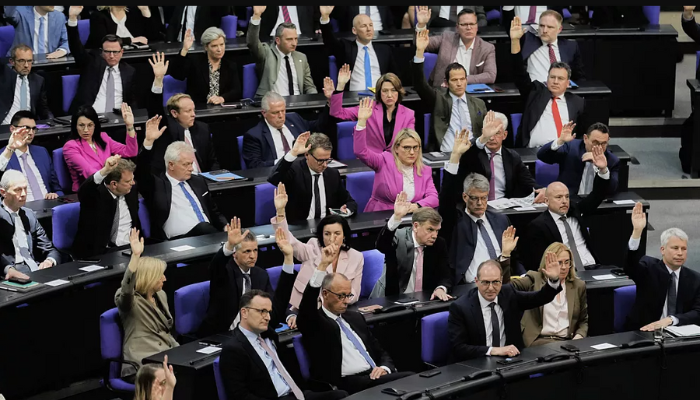
In a landmark parliamentary session on Tuesday, Friedrich Merz, leader of the centre-right Christian Democratic Union (CDU), was officially elected as Germany’s new chancellor, becoming the 10th person to hold the post since the end of World War II. Merz’s rise to the top comes after securing the necessary 316 votes in the 630-member Bundestag, capping off months of political negotiations following the collapse of Olaf Scholz’s government in 2024.
Merz Elected Amid Economic and Political Uncertainty
As the head of Europe’s largest economy, Merz takes office at a time when Germany faces a complicated mix of global tensions, domestic stagnation, and shifting alliances within the European Union. His leadership will be tested immediately, with key priorities including the ongoing war in Ukraine, Europe’s trade relations with the U.S. under Donald Trump’s presidency, and rising inflation at home.
Domestically, Merz has promised to revive Germany’s sluggish economic growth, modernize infrastructure, and pursue tighter immigration controls—all while maintaining Germany’s influential role in European and international diplomacy.
A Vote Laden with Historical Symbolism
The Bundestag vote took place in the historic Reichstag building in Berlin, where the session coincided with the eve of the 80th anniversary of Germany’s unconditional surrender in WWII. The setting—complete with preserved Soviet-era graffiti—offered a solemn backdrop to a day that signaled both change and continuity in German democracy.
Had Merz failed to secure a majority, lawmakers would have entered a 14-day period to nominate an alternative candidate. In absence of consensus, the federal president would have had the authority to either appoint the front-runner or dissolve the Bundestag for snap elections.
Far-Right Surge Poses Political Test
One of the most pressing challenges for Chancellor Merz is the growing influence of the far-right Alternative for Germany (AfD) party. Just last week, Germany’s domestic intelligence agency officially classified the AfD as a “right-wing extremist organization,” citing its anti-migrant rhetoric and threats to democratic norms. The move places the party under heightened surveillance and public scrutiny.
The designation has sparked international debate. U.S. leaders like Vice President JD Vance and Secretary of State Marco Rubio criticized the classification, urging its reversal. In response, Germany’s Foreign Ministry defended the agency’s actions as transparent and rooted in legal protocol. Merz has yet to issue a public statement on the matter.
A Coalition Government with Mixed Ideologies
Friedrich Merz now heads a cross-party coalition formed by the CDU, its Bavarian partner the Christian Social Union (CSU), and the centre-left Social Democrats (SPD) led by Lars Klingbeil. With a combined 328 seats, the coalition holds a workable majority in parliament.
Their shared platform focuses on:
- Reviving industrial growth
- Increasing defense expenditure
- Enforcing immigration reform
- Accelerating digitization and infrastructure upgrades
The CDU-SPD partnership isn’t new; they co-governed Germany during several of Angela Merkel’s terms between 2005 and 2021. This renewed collaboration reflects a pragmatic attempt to restore political stability after years of coalition deadlock.
What’s Next for Germany Under Merz?
Chancellor Merz enters office with a full agenda and little time to spare. With the AfD’s rise, economic headwinds, and a volatile geopolitical environment, his administration must quickly assert its direction. The coming weeks will be crucial as his cabinet outlines policies and begins navigating Germany’s complex domestic and international landscape.
Whether Merz’s conservative leadership style can deliver reform while maintaining unity will define Germany’s trajectory for years to come.
